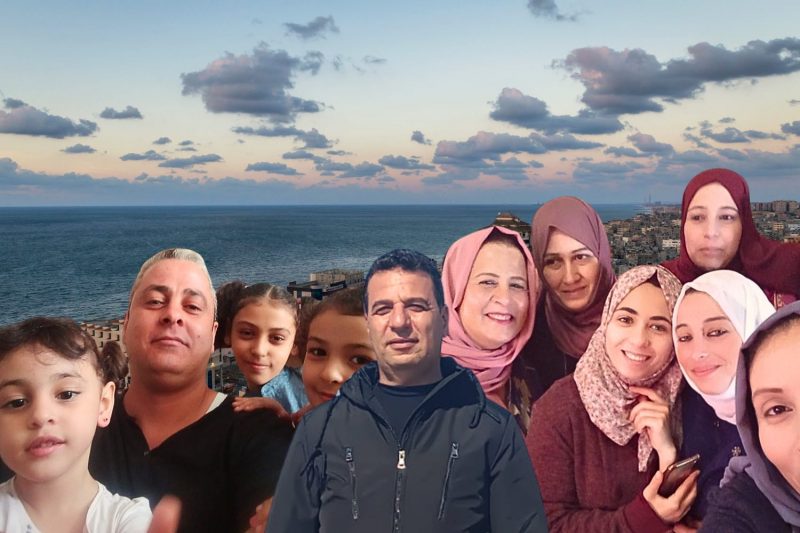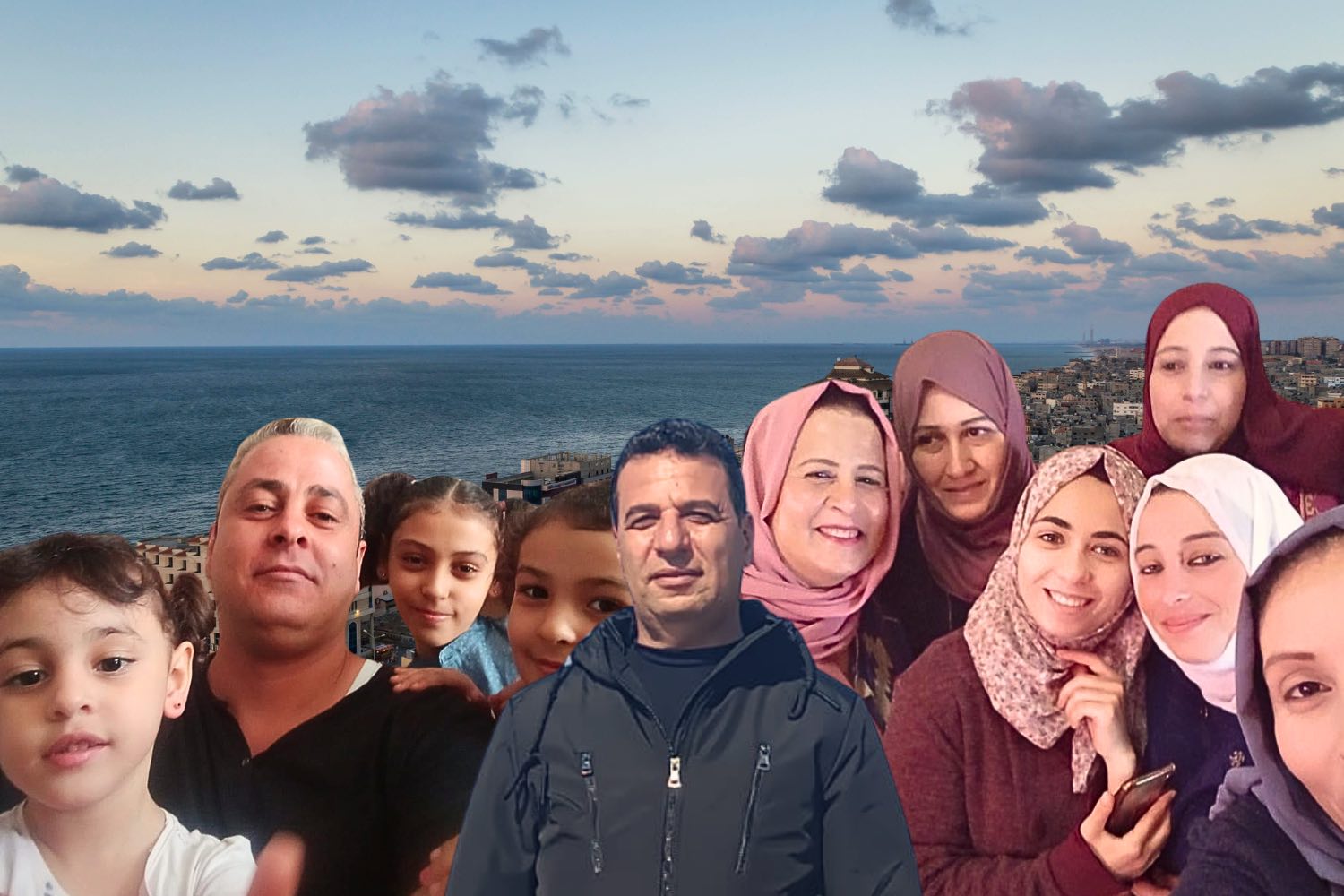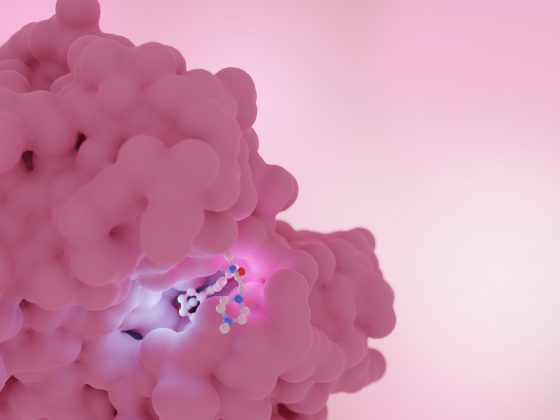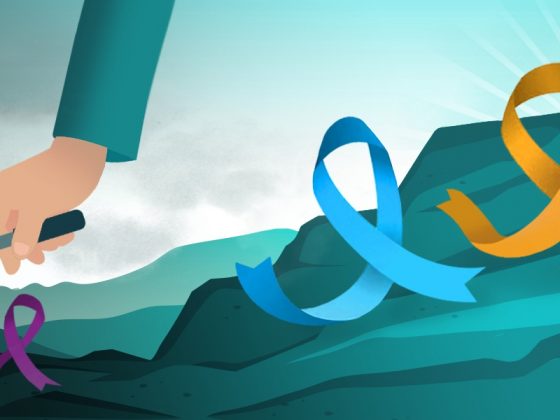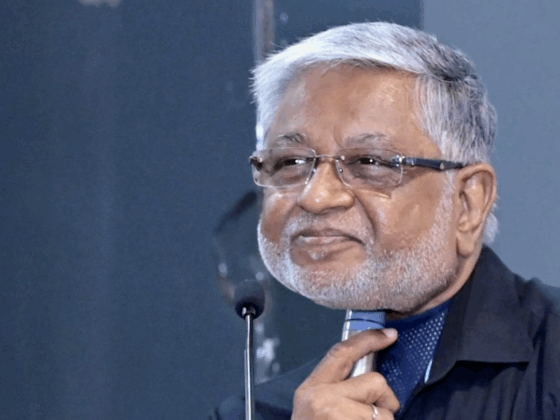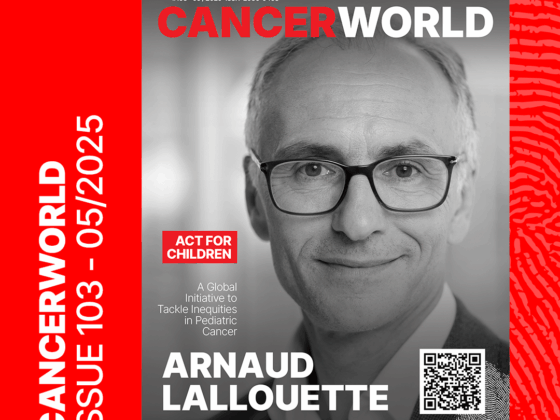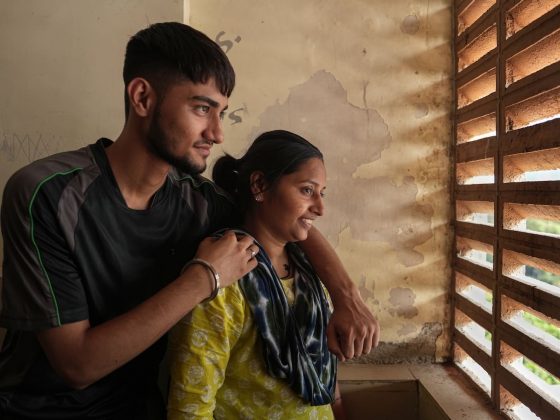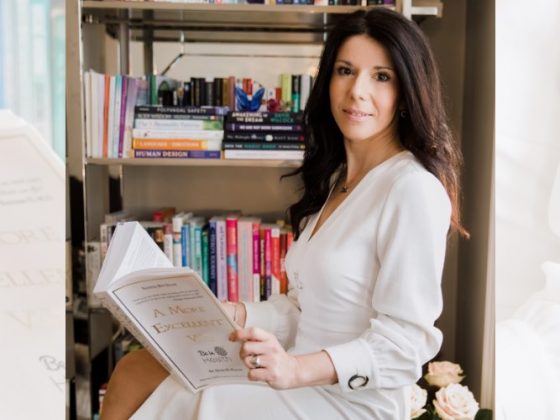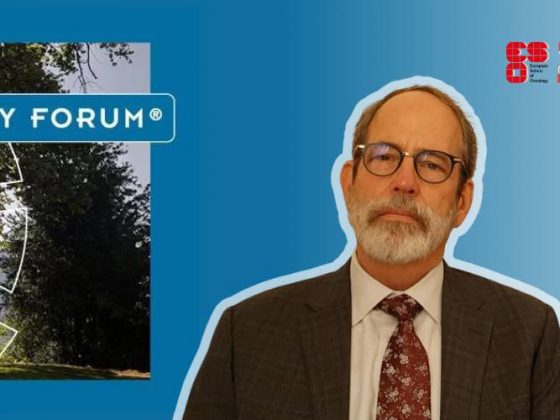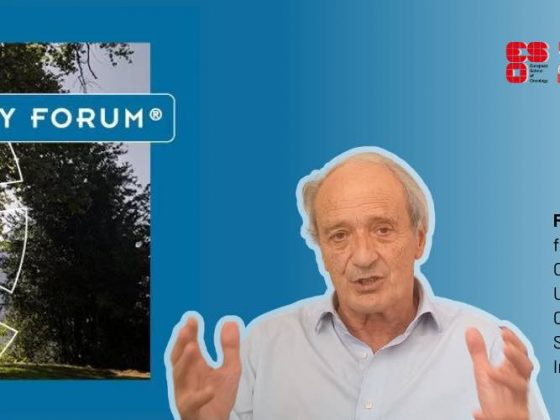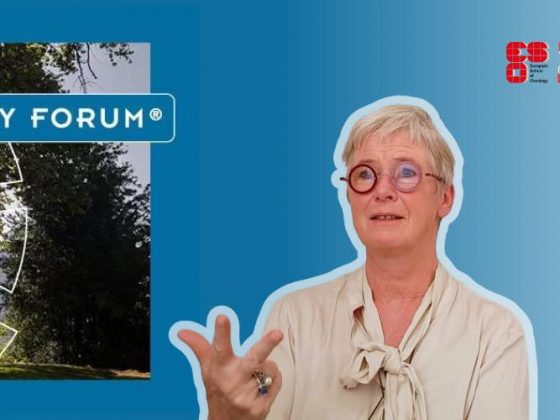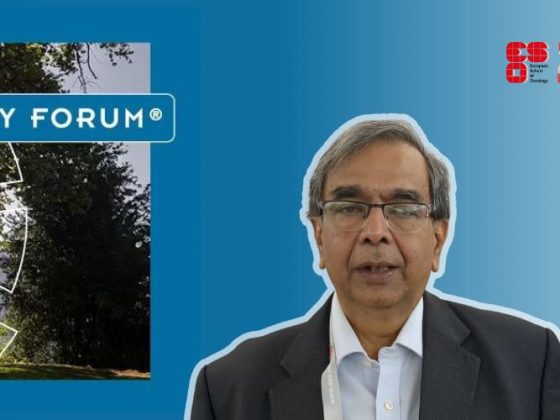In every conflict, it is the most vulnerable who suffer the most. The great majority of Gaza’s population of two million now live in terrible conditions, with poor sanitation, limited access to clean water, infectious diseases rife and precarious access to nutrition – fresh fruit and vegetables in particular. Many live in overcrowded encampments, or are sheltering in schools, hospital compounds and other public areas, often having to move from one unsafe location to another. Included among them are around 8,000 who have been diagnosed with cancer.
They are under the care of the Gaza Cancer Centre, which was established in 2020 at the Turkish Palestinian Friendship Hospital, but has been unable to function since November 2023. All their medical records detailing their diagnostic workups and treatment plans are intact, but for more than 10 months they have received almost no systemic anti-cancer treatments at all, as none is available. Cancer surgery, once concentrated in two or three hospitals with specialist expertise and facilities, is currently carried out by overstretched general surgeons at whichever hospitals are functioning and are close to the patient’s home, as travel remains difficult and unsafe. As Gaza lacks its own radiotherapy facilities, patients requiring radiotherapy would historically be referred for treatment elsewhere – usually in the West Bank. While that was never ideal, it is currently almost impossible.
Offers to provide treatment and care for some of Gaza’s cancer patients have been made by a number of countries, including Egypt, Turkey, UAE, Belgium, Italy, Jordan. However, only around 1,700 of the patients who were referred for treatment outside Gaza were actually able to make that journey. Many of those who did cross the border, particularly in the early months of the war, managed to reach places where they can get good treatment and care. But getting out of Gaza has been much harder since the Rafah crossing was closed in May. Even before that, it seems that many of those who were able to make the crossing into Egypt have become stranded there, in unsuitable hospitals, getting neither the diagnostics nor treatment they need and that they had understood would be waiting for them.
In this Voices piece, some of them tell their stories.
Maher Al-Afifi, currently in Gaza City, needs tests, adjuvant therapy and supportive care after major surgery for stomach cancer
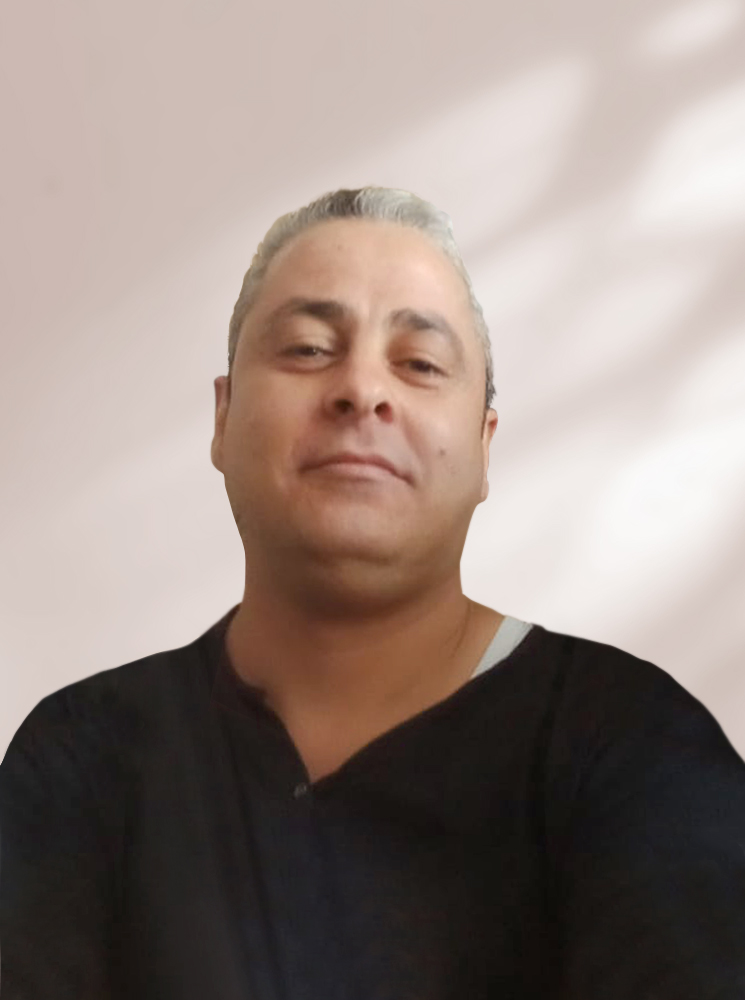
“I haven’t received any cancer treatment yet because none is available here.”
Maher Al-Afifi, aged 43 was diagnosed with stomach cancer in April 2024, during an operation for a perforated ulcer. He is from Gaza City in the north of Gaza, and works as a television journalist, director, and university lecturer. The story of his cancer starts with shrapnel injuries he received months before his diagnosis. The sustained pain from those wounds masked the pain from a stomach ulcer that ultimately perforated, prompting the emergency surgery that revealed his stomach cancer.
I had injuries on my hands, legs, and back from the shrapnel, which left scars that are still visible today. I was treated right there in the street. They stitched up my hands and legs on the street, and our neighbour, a doctor, took charge of cleaning my wounds. I also had to go to Al-Shifa Hospital, but the medical staff there were not specialists, and I suffered from severe pain in my chest and back. The pain continued, and all they gave me were painkillers and some antibiotics for the inflammation. They told me that’s all they could do – there was no CT scan or anything like that available.
Al-Shifa Hospital was heavily damaged and had turned into more of a clinic. Eventually, they transferred me to the Baptist Hospital [Al Ahli Hospital in Gaza City] due to the intense pain I was experiencing. There, they had a CT scan machine, and after the initial scan, they told me, thank God, there were no fractures, just shrapnel that, God willing, would heal with time. They advised me to stay on the medication.
At that time, things got even worse, as there was no food available at all. There was no bread, no flour, nothing was coming in – not even canned food. We had to rely on wild plants, what we call khobiza, just to survive. Sometimes, we’d rarely find a little bit of lentils or light legumes, but food was extremely scarce, and it was exhausting.
The pain in my stomach got worse by the 15th of Ramadan, and eventually, I collapsed while at work [reporting from] Al-Shifa Hospital. They gave me injections and painkillers and recommended that I take it easy at that time. I had to stop working.
I spent the entire Ramadan [starting second week of March] bedridden, feeling very ill. By mid-Ramadan, the pain I was experiencing was unbearable – something I wouldn’t wish on anyone. A doctor came to check on my wound. It wasn’t healing properly, because it was infected with pus. He cleaned the wound, and the pain was so intense that I passed out. They transferred me from home to the Baptist Hospital, where they performed a CT scan and discovered a large perforation in my stomach.
I was urgently taken to Kamal Adwan Hospital in the north. [At the operation the surgeons found that] it was stomach cancer. The next morning, I underwent another surgery to remove a larger portion of my stomach. They had to remove more than 60% of my stomach. They took samples from the stomach and connected it to the intestines again. They sent the samples to the European Hospital in the south [the only functioning hospital with any cancer pathology capacity]. They began the procedures to transfer me abroad for urgent treatment.
I fell into a coma for a week and a half in the intensive care unit. When I woke up, I found out I had been unconscious for that long, waiting for the transfer process. Afterward, I stayed in the hospital for one month and ten days. Unfortunately, the transfer couldn’t happen due to [the closure of] the Philadelphi Corridor and the Rafah border crossing. So, unfortunately, to this day, I’m still here, waiting and hoping for relief, God willing.
I haven’t received any cancer treatment yet because none is available here. They can’t even start treatment without certain tests that are not available here.
The situation in the north is very difficult. I’m in Gaza City, in the northern part of the Strip. There are no real hospitals here. What we have are just basic clinics. The only functioning hospital here is Kamal Adwan Hospital in northern Gaza, in Beit Lahia. The hospital that deals with cancer is located in the south. Here, there are no tests or diagnostics available at all.
I cannot get the nutrition I need, because the food coming into Gaza is almost all canned goods. Unfortunately, these canned goods harm my health and are not suitable for me. If we want to buy meat or vegetables, they are expensive and not available here in large quantities.
We are in an extremely tough situation, and it’s not just me – there are many others. A lot of cancer patients are suffering. I’ve seen many of them at the hospital. Some need radiation, and others need chemotherapy, but none of them have been able to leave for treatment. Two weeks ago, a few were able to get out through an organization, via the Kerem Abu Salem crossing to the UAE, I believe. They were a group of children with very serious and advanced conditions. Thankfully, they managed to get them out.
We are all under God’s mercy, just waiting for relief.
Rania Hamdi is currently in Egypt, where the adjuvant therapy she was meant to receive for her breast cancer did not materialise
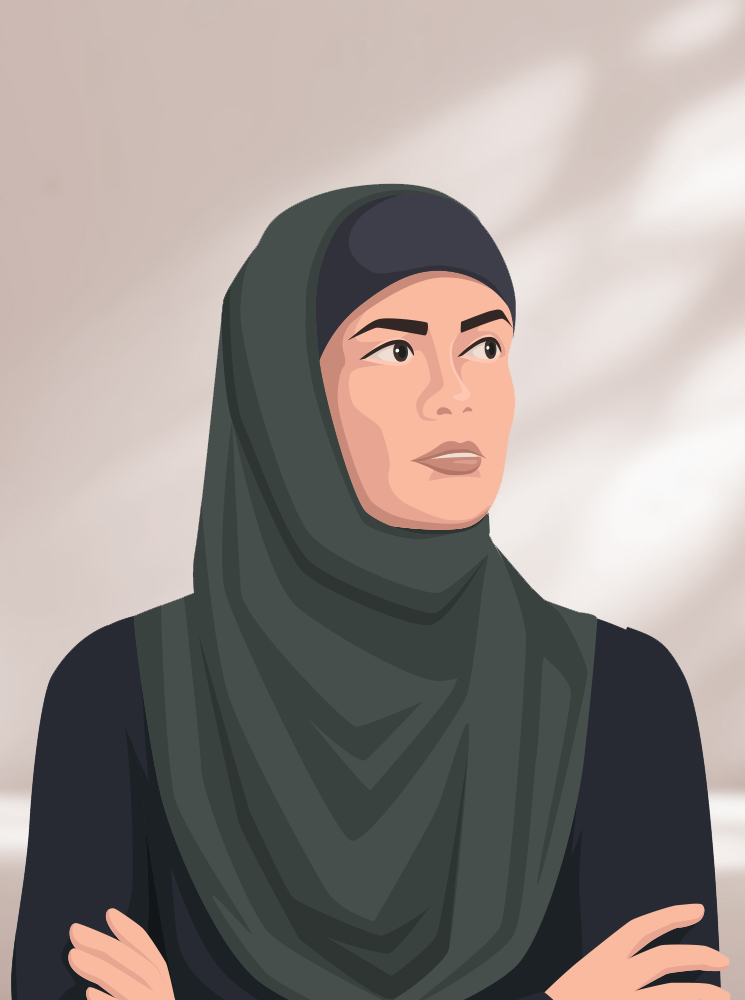
“When I asked about the tamoxifen or other cancer medications, they said they didn’t have them. All they had were some painkillers”
Rania Hamdi (not her real name), 31 years old, was operated for breast cancer in Gaza in September 2023. Her young age and family history made her a priority for referral abroad to get adjuvant radiotherapy and hormonal therapy. It took four months for that referral to happen. And when it did, the promised treatment never happened. Her name has been changed because she feels very vulnerable and is scared to speak out about her current situation.
I had a mastectomy for breast cancer at the end of September 2023.
It was done in a hospital called Al-Hayat [a private hospital in north Gaza], but I was under the care of the Turkish hospital [the Gaza Cancer Centre at the Turkish Palestinian Friendship Hospital, which ceased functioning at the start of November 2023]. I had received [neoadjuvant] chemotherapy at the Turkish hospital, and the doctor who followed up with me worked there. But the surgery was done at Al-Hayat hospital, because it was closer. So, I had the surgery, and then the war started. I still had stitches in my body from the operation. I had the surgery but never went back to the doctor for a follow-up.
My cousin, who is a nurse, checked on the surgery and removed the stitches at home. After some time, we evacuated to Al-Zawayda [in central Gaza], and we found out that the doctor who had been giving me chemotherapy was at a nearby hospital. We went to see him, and he said that I should start radiation therapy because I’m young, and we have a family history of cancer. He recommended radiation therapy as a precaution and said I should continue hormone therapy, which includes an injection every three months and tamoxifen that I need to take. We submitted the transfer request in November, and it was approved in March.
In March, I was transferred to Egypt to a hospital in Nasr City called Health Insurance Hospital. They placed me in the plastic surgery department, and I stayed in the hospital for a month. I came to Egypt for radiation therapy and hormone treatment. They didn’t do anything for me.
I asked for an oncologist, but they kept postponing, and also said the machine was broken. I stayed there for a month, and after that they said they would discharge stable cases, and the follow-up would be done at the housing facility. I was the first case to be discharged. I said I hadn’t received my treatment yet, and they told me it would be followed up at the housing.
They took us to government housing in Al-Salam City. They kept delaying everything, saying tomorrow, then the next day. I told them I was supposed to take tamoxifen and get my injection every three months. Neither the injection nor the tamoxifen was available. No radiation therapy was provided either.
The Egyptian Ministry of Social Solidarity, the Red Crescent, and the Palestinian embassy are responsible for us. The Ministry of Health checks on and records the cases, and the Red Crescent comes every few days with painkillers. When I asked about the tamoxifen or other cancer medications, they said they didn’t have them. All they had were some painkillers, and that was it. They kept prescribing tamoxifen and the injections, but nothing ever arrived. The injection I need, Zoladex [goserelin], costs 3,000 Egyptian pounds (US$ 62), and I was supposed to take it this week, but I couldn’t afford it. I have two daughters and my mother with me, and we were even cut off from the food aid they used to provide.
Thankfully, a kind volunteer stepped in and helped me get radiation therapy through his sister, who works at a hospital in Zagazig. But the machine keeps breaking down a lot. I go there daily, the distance is 55 km one way, I go daily except for Thursdays and Fridays.
I even went to the embassy and told them I needed hormone therapy, but nothing was provided. This has been going on for six months. I’ve only recently started radiation therapy, thanks to the volunteer who helped me.
Regarding the journey out of Gaza, the patient and injury lists are released late at night, and you have to be at the crossing early the next morning. At the time, we were displaced in Rafah [south Gaza]. My mother was listed as my companion, but I told them I wouldn’t leave without my daughters, because I had heard that once you’re out, you’re stuck outside until the war is over. I have two daughters, one is nine, and the other is seven. I told them either I go with my daughters, or we all stay. If they were sent back, I would go back with them. We crossed from the Palestinian side to the Egyptian side and waited from morning until evening. Eventually, they agreed to let my daughters through with me. We were transferred by ambulance straight to the Health Insurance Hospital. We stayed there for a month without being allowed to leave or have visitors.
When I went to the embassy, I asked them about the hormone therapy I needed, and they told me to speak to the [Egyptian] Ministry of Social Solidarity. I told them I had been speaking to the Ministry since we arrived, and their response was, “Be grateful you have an apartment. Others are living on the streets.” I said, “Thank you,” and left.
The question I keep asking myself was: If they weren’t going to help us, why did they take us out from Gaza? I would’ve preferred to stay with my family and go through what they’re going through rather than be stuck here. It would have been better to stay in Gaza. I don’t understand why they brought us here just to leave us stranded. I try to avoid conflicts with them to maintain my dignity, so I just agree and say, ‘Okay, fine.’
Salwa Mahmoud, currently in Turkey, is finishing treatment for uterine cancer
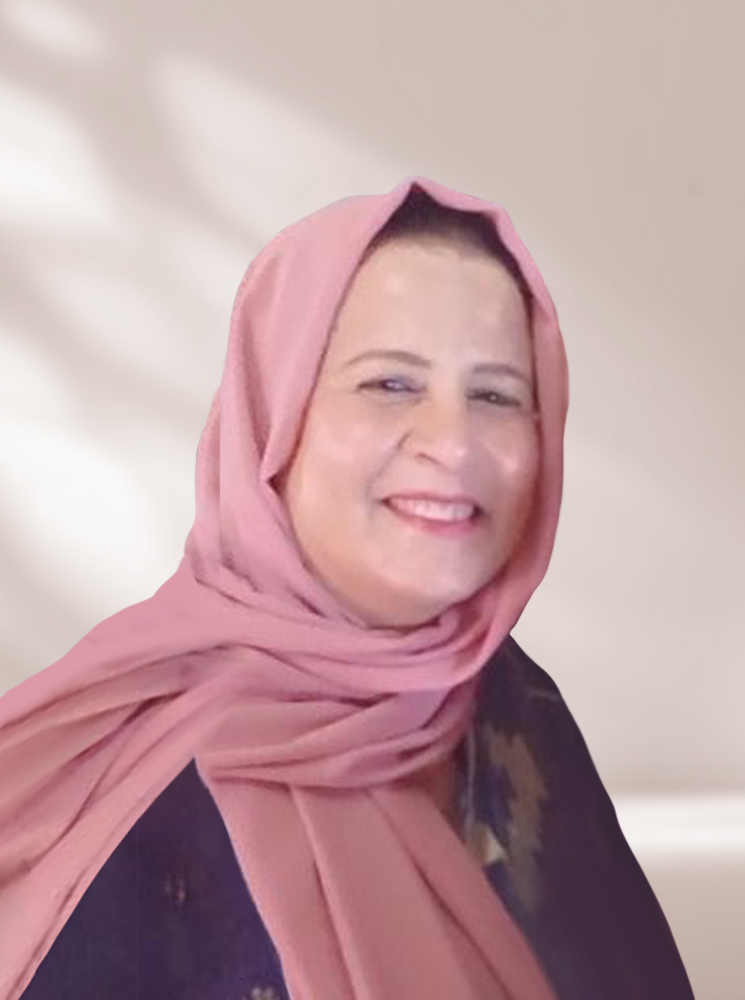
“They took us straight to the hospital, did all kinds of tests, and gave us a proper meal”
Salwa is a 59-year-old Gazan woman who, prior to the war, had undergone major surgery for a locally advanced cancer of the uterus, including removal of lymph nodes, but had not yet received any adjuvant treatment. Her family had to leave their home to seek shelter in an overcrowded school building, where they had no privacy, no proper sanitation, and barely any clean water, “so keeping clean was almost impossible.” She was put on the referral list to be transferred to Turkey to continue her treatment.
I got the call on the morning of November 19. They told me my name was on the list to travel to Turkey. I couldn’t believe it. I wasn’t ready. I didn’t even have my passport with me; it was back at the house. We had left everything behind when we fled.
I was exhausted. I had only a small bag with me, a couple of clothes and my important documents, but no passport. I told my son, “We have to go back.” The situation was dangerous, but without my passport, I couldn’t travel. We had no other choice. The roads were filled with debris, and the sound of drones and bombs was constant. We were running the whole time, terrified that something would happen. My husband stayed behind, waiting in the car. He said, “Go as quickly as you can. We can’t stay long.”
When I reached the house, it was heartbreaking. Everything was destroyed. The garden was gone, and there was debris everywhere. I smelled death… the animals we had left behind were dead, cows, sheep. The house was barely standing. “I ran into the house, opened the closet, and grabbed my passport. I also found a pair of shoes, since the ones I was wearing weren’t suitable for traveling. I didn’t waste time. I grabbed what I could, and we ran back to the car, my heart racing the whole time. As we were leaving, I could hear explosions in the distance. I kept thinking, “Thank God we made it out in time.” We ran back to the car, got in, and drove away as fast as we could. I felt like we were running for our lives.
When we got to the border, they told me that only I could go. My son couldn’t come with me because he wasn’t on the list. I didn’t want to leave without him, but they said if I didn’t go now, I would miss my chance. I had no choice but to go alone.
Crossing into Egypt felt like a relief, but I was still anxious. I had never travelled like this before – under these circumstances, with no clear idea of what would happen next. The Egyptian Red Crescent and Turkish officials were there to help us. They gave us food, water, and even small bags with personal items such as a toothbrush and soap. I had lice in my hair, and it was so hard to keep clean. When I arrived in Turkey, I asked the nurse for medicine to treat it.
It felt strange to be so far from home, but the kindness of the people made a difference. When we got to the airport in Al-Arish, we were taken on a military plane. It was my first time on a military aircraft, and it felt intimidating. The Turkish soldiers helped us onto the plane. They treated us with such care, making sure we were comfortable for the journey. I couldn’t stop thinking about my family back in Gaza. I was grateful to be safe, but my heart was still with them.
When we landed in Turkey, we were met by medical staff and taken to the hospital. It was like entering a different world. They took us straight to the hospital, did all kinds of tests, and gave us a proper meal. I hadn’t felt that kind of relief in a long time.
The Turkish people were very generous, but the language barrier made things difficult. I was alone without my family. I talk to my children on the phone, but it’s not the same. I worry about them constantly, especially my grandchildren. My husband stayed behind in Gaza. Every time he calls, I hold my breath, hoping nothing has happened. I’ve lost family members in the war, and every time I hear news from Gaza, I fear the worst.
My faith keeps me going. I believe God is watching over me, even in these difficult times. I keep praying for the strength to get through this, and for my family to stay safe back in Gaza.
Raed Hammad, still in Gaza, needs tests and access to the right food and clean water following removal of a cancerous kidney
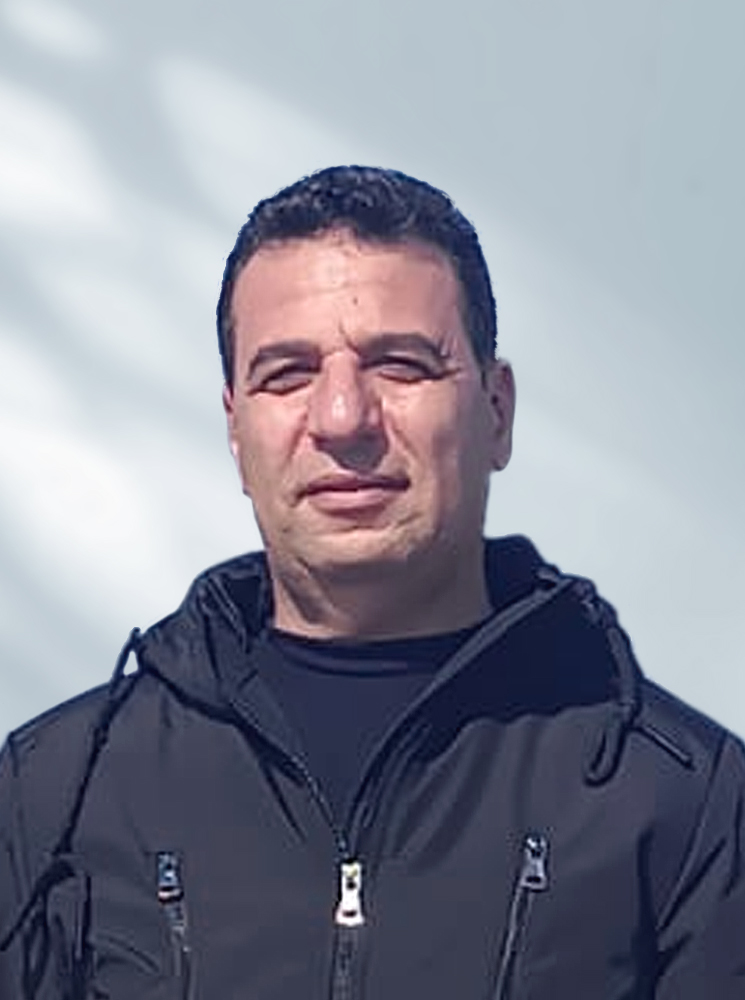
“I now suffer from more difficulty in urination, back and joint pain, fatigue, and exhaustion”
Raed Mufid Abdullah Hammad is a kidney cancer survivor living in Khan Younis in the southern part of Gaza. His cancerous kidney was removed, but he needs regular check-ups on the health of his remaining kidney, and he needs follow-up nuclear isotope scanning to check whether he still has cancer in his body. He also needs to maintain a healthy diet and drink plenty of clean water. In his current situation none of these are possible. After his house in Khan Younis was severely damaged and lost access to electricity and water, he moved with his family to live with relatives in Rafah. When Rafah became unsafe, they moved back to their damaged house.
In 2016, I started experiencing severe pain in the lower right side of my back. I would go to the hospital, and they would give me painkillers. Over time, the pain worsened, especially at night, to the point that I could not walk or stand due to the intensity. I went to the hospital in my city [Nasser Hospital] and requested tests and X-rays.
They did what they could, given the limited equipment available. The X-ray showed a foreign object near my kidney, and I was told I needed an MRI immediately. However, the Nasser Hospital did not have an MRI machine.
I was referred to the European Hospital in Khan Younis, where I had the MRI. I took the disc and report, and the doctor told me I had a problem with my kidney, but he hoped for the best. I asked some friends who the best doctor in Gaza was for this issue. They guided me to a doctor in Gaza, and advised me that, if surgery was needed, it would be better to have it in a private hospital due to the better medical facilities and care available there.
I went to his private clinic, and after reviewing the MRI, he said, “God bless you, I need to speak to a family member.” I called my brother and sister, who came and met with the doctor. He explained that there was a cancerous tumour in the right kidney, causing the severe pain and cramping, and that I needed a full kidney removal to prevent the cancer from spreading throughout my body.
The surgery took three hours, and I stayed in the hospital for about two weeks for monitoring and treatment. Upon discharge, I was prescribed medications, a special diet, vitamins, and advised to avoid certain foods and drinks that could harm my other kidney. I was also instructed to get kidney function tests every two months at the Turkish Friendship Hospital [Gaza Cancer Centre]. Of course, my mental state after the operation was difficult, but with time, one accepts God’s will.
The war has had a significant impact on my health and follow-up care, especially after the Turkish Friendship Hospital was hit and could no longer function. I have been unable to maintain proper nutrition because of the war, the closure of crossings, and the shortage of basic food supplies. I have been forced to eat canned food, which has greatly affected my health. I now suffer from more difficulty in urination, back and joint pain, fatigue, and exhaustion. Additionally, there is no access to clean drinking water.
I need proper nutrition, but it is expensive, and I cannot afford it. I also need a nuclear scan and advanced tests to check on my health. I need to travel abroad for treatment in a foreign country with the necessary facilities. I have a referral form to travel abroad, and am waiting on the waiting list due to the closure of the crossings.
I am hopeful that I will be able to travel for treatment and that the World Health Organization will intervene, urging cancer patient organisations to include my name and other cancer patients for travel to their countries and help with our treatment, providing us with a safe environment.
The urgent need to provide basic oncology services for Gaza’s cancer patients has led to calls for a ‘cancer field hospital’ to be set up. Cancerworld will be covering that story in a future article.

